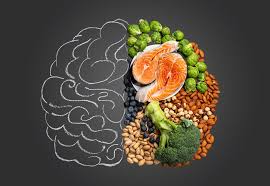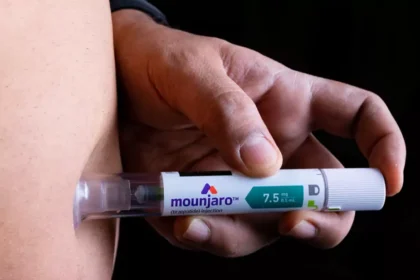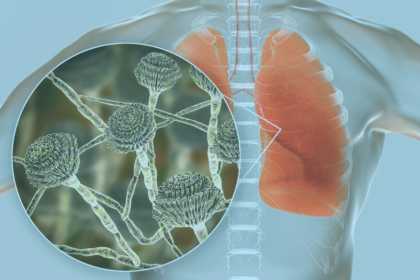Mental health isn’t just shaped by your thoughts, environment, or experiences—what you eat also plays a crucial role in how your brain functions and how you feel emotionally. From brain chemicals to mood regulation, the connection between nutrition and mental well-being is stronger than many realize.
In this article, we’ll explore how food affects your mood, concentration, stress levels, and overall emotional health. We’ll also offer tips on brain-boosting foods and which eating habits to avoid.
The Gut-Brain Connection
What Is the Gut-Brain Axis?
The gut-brain axis is the communication network that links your digestive system to your brain. Your gut contains trillions of microbes (gut microbiota), which influence brain function by:
- Producing neurotransmitters (like serotonin and dopamine)
- Regulating inflammation
- Communicating via the vagus nerve to influence mood and cognition
Importance of a Healthy Gut
A healthy gut helps regulate mood, reduce anxiety, and enhance focus. Poor gut health, on the other hand, is linked to conditions such as depression, anxiety, and fatigue.
How Nutrients Influence Mental Health
1. Proteins
Proteins provide amino acids, which help build neurotransmitters like serotonin (for mood) and dopamine (for motivation).
- Good sources: Eggs, chicken, fish, legumes, nuts
2. Omega-3 Fatty Acids
Essential for brain development and function. Omega-3s are known to:
- Reduce symptoms of depression
- Support memory and learning
- Lower inflammation in the brain
- Found in: Salmon, chia seeds, flaxseeds, walnuts
3. Vitamins and Minerals
| Nutrient | Role in Mental Health | Sources |
|---|---|---|
| Vitamin B12 | Energy, mood balance | Eggs, dairy, fish, meat |
| Folate (B9) | Supports serotonin levels | Leafy greens, beans, citrus fruits |
| Vitamin D | Mood regulation | Sunlight, mushrooms, fatty fish |
| Iron | Reduces fatigue, supports focus | Red meat, spinach, lentils |
| Zinc | Brain signaling, mood | Seeds, nuts, whole grains |
| Magnesium | Calms the nervous system | Dark chocolate, nuts, avocados |
4. Complex Carbohydrates
Provide steady energy and support serotonin production.
- Good sources: Oats, brown rice, whole wheat bread, sweet potatoes
Foods That Help Improve Mental Health
Top Brain-Boosting Foods
- Fatty fish – Improves brain structure and mood
- Leafy greens – Rich in antioxidants and B vitamins
- Nuts & seeds – Help fight depression and anxiety
- Berries – Contain flavonoids that support cognition
- Yogurt and fermented foods – Contain probiotics for gut health
- Dark chocolate – Boosts endorphins and serotonin
Foods That Negatively Affect Mental Health
Avoid or Limit These
- Refined sugars – Cause mood crashes and increase anxiety
- Processed foods – Contain unhealthy fats and chemicals
- Caffeine in excess – Can worsen anxiety and disrupt sleep
- Alcohol – Depresses the central nervous system
- Artificial additives – May affect mood and behavior
Mental Health Conditions Influenced by Diet
Depression
Low levels of nutrients like omega-3s, folate, and magnesium are linked to higher risks of depression.
Anxiety
High caffeine or sugar intake can trigger or worsen anxiety. Magnesium and probiotics help calm the nervous system.
ADHD
A diet high in sugar and low in omega-3s may contribute to hyperactivity and focus issues.
Cognitive Decline
Poor nutrition increases the risk of dementia and memory loss. A Mediterranean-style diet helps reduce this risk.
Developing Healthy Eating Habits for Mental Wellness
Daily Tips
- Eat regular, balanced meals
- Stay hydrated
- Include all food groups
- Limit junk food to occasional treats
- Keep a food journal to track mood changes after meals
Meal Planning
| Meal Time | Mental Health-Friendly Option |
|---|---|
| Breakfast | Oats with berries and chia seeds |
| Lunch | Grilled chicken with quinoa and leafy greens |
| Snack | Yogurt with walnuts or banana with peanut butter |
| Dinner | Baked salmon, brown rice, and steamed broccoli |
When to See a Nutritionist or Doctor
If you experience:
- Sudden mood changes
- Ongoing fatigue or brain fog
- Anxiety or depression symptoms
- Eating disorders or extreme diets
A registered dietitian or mental health professional can help customize a nutrition plan to support both physical and emotional health.
Conclusion
Your brain is like a car—it needs the right fuel to function properly. Eating a balanced diet rich in whole, nutrient-dense foods not only benefits your physical body but also has a profound effect on your mental well-being. Whether you’re trying to lift your mood, reduce anxiety, or simply feel more focused and energetic, nutrition is a powerful tool in your mental health toolkit. Start small, stay consistent, and feed your mind with care.
8 Frequently Asked Questions (FAQs)
1. Can poor nutrition cause mental health problems?
Yes. Diets low in nutrients and high in processed foods can increase the risk of depression, anxiety, and mood swings.
2. What is the best diet for mental health?
A Mediterranean-style diet rich in vegetables, healthy fats, lean protein, and whole grains is highly recommended.
3. Does sugar affect mood?
Yes. Sugar can cause temporary highs followed by energy crashes, irritability, and anxiety.
4. Can drinking water improve mental clarity?
Absolutely. Dehydration affects mood, concentration, and cognitive performance.
5. Are supplements necessary for mental health?
Supplements may help if you have deficiencies, but it’s best to get nutrients from food first and consult a healthcare provider.
6. How fast can diet changes affect mood?
Some people feel improvements in energy and mood within days or weeks of changing their diet.
7. Do probiotics help with mental health?
Yes. Probiotics improve gut health, which can positively influence mood and reduce symptoms of anxiety or depression.
8. Should I stop eating junk food completely?
You don’t have to eliminate it entirely. Moderation is key. Focus on a balanced diet while occasionally enjoying treats.









